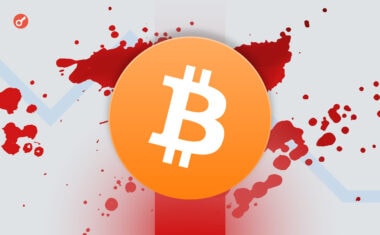After a two-year pause, the South Korean Financial Intelligence Unit (FIU) has resumed consideration of Binance’s application to acquire the local crypto exchange Gopax, which could open the way for the company to officially return to the South Korean market. This was reported by local media.
As a reminder, Binance acquired a 67% stake in Gopax in February 2023. In January 2024, it planned to reduce its ownership stake, and in March, it submitted a “Management Change Report” to the FIU. According to the law, the regulator was required to decide within 45 days; however, due to constant requests for additional documentation, the process was delayed for more than two years.
According to local media reports, the FIU is currently reviewing the management change report favorably, and approval could come by the end of 2025.
The regulatory delay was due to concerns about Binance’s impact on the country’s anti-money laundering (AML) system. According to South Korean law, individuals convicted of money laundering or terrorist financing offenses cannot operate cryptocurrency companies.
The reason for the change in the FIU’s position is likely to be the resolution of Binance’s legal disputes with the US.
In June 2023, the US Securities and Exchange Commission (SEC) filed a lawsuit against the exchange for providing services to US users without permission and misusing customer funds. Subsequently, Binance agreed to pay a $4.3 billion fine, after which the US Department of Justice and the US Treasury dropped the charges, and the SEC dropped its lawsuit against the company and its founder, Changpeng Zhao, in May 2025.
This removed the main obstacles for Binance in South Korea. According to a representative of the financial sector, “after all legal claims from US regulators were dropped, the risks for Gopax as a company with a foreign shareholder disappeared. The likelihood of approval of the report this year is very high.”
Binance is currently the largest cryptocurrency exchange in the world, and with this deal, it can directly enter one of the key Asian markets.
Despite the positive developments, South Korean financial authorities may open a new investigation into Binance over allegations of underreporting liquidations on the exchange.
After the sharp market collapse that occurred on the night of 10-11 October, the amount of liquidation exceeded $19 billion in 24 hours, of which $706 million was on Binance.
Hyperliquid CEO Jeff Yan told X that centralized exchanges, including Binance, underestimate liquidation rates by a factor of 100 because liquidations occur in spurts and only one per second is reported.
If the audit confirms these suspicions, Binance may face additional audits at the Korean level.
As a reminder, Binance took responsibility for the incident with the USDE, BNSOL, and WBETH token dispatch, which led to forced liquidations of many users’ positions, and offered a compensation program.
